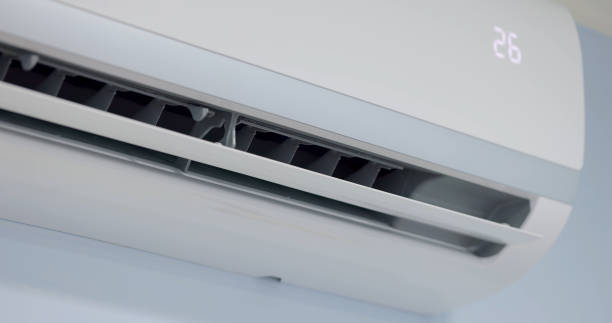In the realm of climate control, air conditioners stand as the stalwart guardians against discomfort and humidity. However, even these technological marvels can succumb to wear and tear, particularly when it comes to their humidity sensors. These sensors play a pivotal role in maintaining a comfortable indoor environment by regulating moisture levels. When damaged, they can wreak havoc on both the efficiency and effectiveness of an air conditioning system. Let’s delve into the implications of such damage and explore potential remedies.
The Role of Humidity Sensors
Humidity sensors in air conditioners are akin to the senses of the system. They continuously monitor the moisture levels in the air, allowing the unit to adjust its operations accordingly. This adjustment is crucial for maintaining a balanced indoor environment, preventing issues like mold growth, discomfort, and even health problems. When functioning optimally, humidity sensors ensure that the air conditioner strikes the perfect balance between cooling and dehumidification.
Implications of Damage
When humidity sensors become damaged, the consequences can be far-reaching. One immediate effect is a loss of accuracy in humidity regulation. Without precise data from the sensors, the air conditioner may struggle to maintain the desired humidity levels, leading to an environment that feels clammy or excessively dry.
Furthermore, damaged sensors can compromise energy efficiency. An air conditioner with malfunctioning humidity sensors may run longer than necessary, consuming more energy in the process. This not only translates to higher utility bills but also places additional strain on the system, potentially shortening its lifespan.
Another concern is the impact on indoor air quality. Inaccurate humidity control can create conditions conducive to mold and mildew growth, which pose health risks to occupants. Additionally, overly humid environments can attract pests and exacerbate respiratory issues, while overly dry air can cause skin irritation and respiratory discomfort.
Common Causes of Damage
Several factors can contribute to the deterioration of humidity sensors in air conditioners. Exposure to moisture, dust, and contaminants over time can degrade sensor components, leading to malfunctions. Poor maintenance practices, such as infrequent cleaning or neglecting to replace filters, can exacerbate these issues.
Electrical problems, such as voltage fluctuations or shorts, can also damage sensors. Additionally, physical damage from mishandling during installation or maintenance procedures can render sensors ineffective.
Remedies and Prevention
Addressing damage to humidity sensors in air conditioners requires a multi-faceted approach. Regular maintenance is paramount, including cleaning or replacing filters, inspecting sensor components for signs of wear, and ensuring proper calibration of the sensors.
In cases where sensors are irreparably damaged, replacement is necessary. This involves sourcing compatible sensors from reputable manufacturers and following proper installation procedures to ensure optimal performance.
Implementing preventive measures can help mitigate the risk of sensor damage. This includes installing protective covers or enclosures to shield sensors from moisture and contaminants. Additionally, investing in surge protectors or voltage regulators can safeguard sensors against electrical issues.
The Importance of Professional Assistance
While some maintenance tasks can be performed by homeowners, addressing more complex issues or replacing damaged sensors may require the expertise of HVAC professionals. These specialists have the knowledge, tools, and experience to diagnose problems accurately and implement effective solutions, minimizing downtime and ensuring the long-term reliability of the air conditioning system.
Humidity sensors are integral components of air conditioning systems, playing a crucial role in maintaining indoor comfort, energy efficiency, and air quality. Damage to these sensors can have widespread implications, ranging from inaccurate climate control to increased energy consumption and compromised indoor air quality. By understanding the causes of sensor damage and implementing preventive measures and proper maintenance practices, homeowners can ensure the longevity and effectiveness of their air conditioning systems. When issues arise, seeking professional assistance is essential for timely and effective resolution. With vigilant care and attention, the damaging effects of humidity sensor malfunctions can be mitigated, allowing air conditioners to continue their vital role in keeping indoor environments comfortable and healthy.
Don’t delay your air conditioner repair. Do not forget that repairing is much easier and cheaper immediately after a breakdown occurs. If your air conditioner is working, but making strange noises or not cooling the room enough, it means it’s time to contact the technicians.
Don’t wait until the air conditioner is completely out of order. In the case of untimely repairs, there is a very high possibility that a long complex repair will be required. Even a few days without air conditioning in the summer heat in San Diego County, CA will bring great discomfort to the whole family. But by calling the masters from SDAC Heating & Air Conditioning you can avoid this problem.
Contact us
